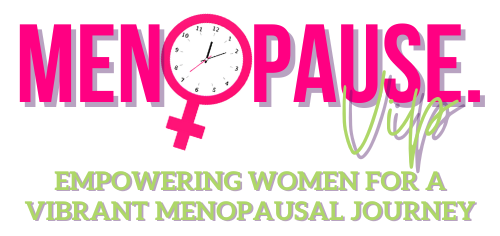Introduction
Today I will describe in this article how Unraveling the Impact of Fat on Hormonal Activity.
The intricate interplay between fatty foods and hormonal activity in the human body constitutes a fascinating subject of study. At the heart of this connection lies the influence of high-fat diets on estrogen levels – the pivotal female sex hormones circulating in the bloodstream.
Yet, an excess of estrogens can present a challenge, particularly for women as it fuels certain breast tumors. Although estrogens are naturally occurring and essential hormones for both genders, elevated levels can serve as a driving force behind specific forms of breast cancer.
Remarkably, adopting low-fat diets can rapidly decrease estrogen levels among women, and vegetarians exhibit significantly lower estrogen levels than their non-vegetarian counterparts, mainly due to the relatively lower fat content in their diets.
The distinction lies in the presence of sex hormone-binding globulin, acting as carrier molecules in the blood, ensuring hormonal equilibrium by keeping estrogens inactive until needed. Conversely, fatty foods reverse this delicate balance by increasing estrogens and diminishing the influence of the carrier molecules that regulate them.
Interestingly, animal fats seem to pose a greater concern than vegetable oils in the context of hormonal impact. A comprehensive study conducted by Paolo Toniolo from the New York University Cancer Institute analyzed the dietary patterns of 250 women with breast cancer alongside 499 women without cancer from the same region in northwestern Italy. While both groups consumed similar amounts of olive oil and carbohydrates, the cancer patients displayed a higher consumption of meat, cheese, butter, and milk.
This divergence proved critical, with women consuming more animal products having up to three times the risk of developing breast cancer compared to others.
Scientific Studies About Unraveling the Impact of Fat on Hormonal Activity
In 2003, Harvard University conducted a pioneering study involving over 90,000 women, unequivocally linking the consumption of animal fat with a significantly heightened risk of breast cancer, especially when compared to those consuming minimal amounts of animal fats.
While the evidence leans toward animal fats as the primary concern, vegetable oils are not entirely absolved. In a notable 2007 study by the National Institutes of Health, a direct correlation between total dietary fat intake and postmenopausal invasive breast cancer was established.
Vegetable oils were implicated in influencing estrogen levels and potentially increasing the production of cancer-causing free radicals. It is evident that mere substitution of fried chicken with fried onion rings falls short of addressing the issue. Instead, the optimal diet should reduce animal product consumption and minimize the intake of vegetable oils.
Certain foods, however, offer distinctive benefits in combating the impact of estrogen. Soybeans, for instance, contain natural compounds known as isoflavones. These compounds exhibit weak estrogen-like characteristics and can occupy estrogen receptors on breast cells, potentially displacing normal estrogens. This, in turn, leads to reduced estrogen stimulation of each cell.
Numerous research studies substantiate the safety and efficacy of soy foods in both breast cancer prevention and survival. The consumption of soy products during adolescence is particularly advantageous, offering significant protection against breast cancer risk.
Women who consume substantial amounts of soy foods demonstrate lower chances of developing pre- and postmenopausal breast cancer compared to those with limited soy intake. Additionally, breast cancer survivors who incorporate more soy foods into their diets experience a decreased risk of recurrence and improved survival prospects compared to those who do not.
Notably, soybeans are a staple in Asian diets and could contribute to the lower cancer rates observed in these regions. The amalgamation of unique dietary choices and hormonal effects fosters a profound understanding of the relationship between fats and the intricate workings of the human body.
Conclusion About Unraveling the Impact of Fat on Hormonal Activity
In conclusion, this insightful exploration into the profound connection between fat and hormonal effects has left us with a mix of emotions. While it is awe-inspiring to witness the intricate dance of hormones and their impact on our bodies, it is equally disconcerting to realize how certain dietary choices can influence our susceptibility to breast cancer.
The revelation that high-fat diets can trigger a surge in estrogens, potentially fueling breast tumors, serves as a stark reminder of the delicate balance within our systems.
As we delve into the realm of animal fats and vegetable oils, we are confronted with the weighty evidence suggesting that our dietary decisions play a pivotal role in shaping our health outcomes.
Yet, amidst the labyrinth of findings, there is hope. The discovery of soybeans and their isoflavones acting as gentle warriors, protecting breast cells by reducing estrogen stimulation, inspires a sense of optimism. The knowledge that soy foods can aid in both the prevention and survival of breast cancer instills a glimmer of assurance in the face of adversity.
As we bid farewell to this captivating journey, one thing becomes crystal clear – the power of our choices. Let us embrace this newfound understanding with determination and compassion, crafting a path of nourishment and wellness for ourselves and those we care for. For it is within our hands to navigate the complex landscape of hormones and fats, paving the way towards a healthier, more empowered existence.
Thank you for being here.

Penha Cristina Mullett
Brazilian Holistic Therapist
AADP Member
IPHM Member
Personal Trainer & Nutrition Coach Certificate




